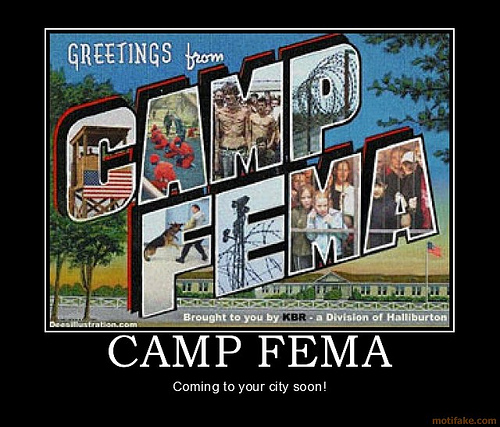| zonbron |
22 oktober 2013 01:21 |
9
Explanatory Notes
:
(i)
The thrust of
paragraphs (b) and (c)
is the
existence
of two national
bodies e
ntrusted with the implementation of th
e
present
Statute.
The first body
(
referred to in
paragraph (b)) is
a
g
overnment
al
department.
The second body
(
established under
paragraph (c))
is
external to the Government, acting independently (
not unlike
a
special Ombudsman).
(ii)
The independent Commission
will be empowered to express its
views regarding implementation of the Statute by all concerned.
Implementation in this context
includes (but is not limited to) the
imposition of penal sanctions, education and media coverage.
(iii)
The independent Commission wi
ll also be empowered to organize
national or international conferences, workshop0s, seminars, etc.
Section
7
.
Penal Sanctions
(a)
The following acts will be regarded as
criminal offences
punishable
as aggravated crimes
:
(i)
Hate crimes as defined in Section
1(c).
(ii)
Incitement to violence against a group as defined in
Section 1(a).
(iii)
Group libel as defined in Section 1(b).
(iv)
Overt
approval of a
totalitarian ideolog
y
, xenophobia
or
anti
-
Semitism
.
(v)
Public approval or d
enial of the Holocaust
.
(vi)
Public approval or d
enial
of any other act of genocide
the existence of which has been determined by an
international criminal court or tribunal
.
Explanatory note:
This
S
ub
-
S
ection defines acts punishable as
aggravated crimes.
S
ub
-
paragraph
(vi) does not
affect
public (or private)
discussions and di
fferences of
opinion
as to whether
other acts
–
not
covered by
decisions
of international courts or tribunals
-
also
amount, or fail to amount, to genocide.
(b)
Juveniles convicted of committing crimes
listed in
paragraph
(a)
will be required to undergo a rehabilitation program
me
designed to instill in them a culture of tolerance. :wtf:
10
(c)
C
rimes
listed in
paragraph
(a)
will not be considered political
offenc
es for purposes of extradition.
(d)
(e)
Victims of crimes
listed in
paragraph
(a)
will have a legal
standing to bring a case against the perpetrators
, as well as a
right to redress
.
(f)
Free legal aid will be offered to victims of crimes listed in
paragraph
(a), irrespective of qualification in terms of
impecuniosity.
Section
8
.
Education
The Government shall ensure that:
(a)
Schools
, from the primary level upwards,
will introduce courses
encouraging students to accept diversity and promoting a
climate
of tolerance
as regards
the qualities and cultures of
others
.
Explanatory Note
s
:
(i)
The principle has been accepted for many years (
cf
. the
Declaration Regarding Intolerance
–
A Threat to Democracy,
adopted by the Committee of Ministers of the Council of
Europe on
14 May 1981
).
(ii)
It is very important
to start such courses as early as possible in
the educational program
me
,
i.e
.
in elementar
y school
.
Yet,
these courses must be offered also at higher levels of education,
up to and including universities.
(b)
Similar courses will be incorporated in the training of those
serving in the military and law enforcement agencies.
(c)
Training and tolerance
awareness courses will be made
available to different strata of society, with an emphasis on
professional groups.
Explanatory Note
s
:
(i)
Training must be made available as part of continuing adult
education.
11
(ii)
It is
especially
important
to ensure
advanced professional
training of lawyers
(including judges
and criminal justice
personnel
), administrators
,
police officers,
doctors, etc.
(d)
Teaching materials for tolerance awareness
courses (including
syllabi) will be developed by
Departments
of Education
to meet
the needs
.
(e)
I
nstructors will be trained in a manner qualifying them to
train
others in tolerance awareness courses
.
(f)
Departments
of Education will ensure that teaching materials in
ordinary courses will be free of a
ny innuendos and slights
directed
against any group as defined in Section 1(a).
(g)
The production of books,
plays,
newspapers reports, magazine
articles,
films
and television program
me
s
–
promoting a c
limat
e
of tole
rance
–
will be encouraged and, where necessary,
subsidized
by the Government
.
Section
9
.
Mass
Media
(a)
The
G
overnment shall en
s
ure that public broadca
st
ing
(televis
ion a
n
d radio)
stations
will devote
a prescribed
percentage of their programmes
to promot
ing
a climate of
tolerance
, as per Section 8(f)
.
(b)
(b)
The Government shall encourage
all
privately owned
mass
media
(including
the printed press
)
to
promote
a climate of
tolerance, as per Section 8(f).
(c)
The Government shall encourage
all the
mass media (public a
s
well as
private) to
a
dopt
an ethical code of conduct, which will
prevent
the spreading of intolerance
and will be supervised by a
mass
media
c
omplaints
c
ommission
.
Explanatory Note
s
:
(i)
This is a delicate matter, inasmuch as
there is no intention to censor
the media.
The
media
c
omplaints
c
ommission is supposed to
consist of independent persons
,
b
ut it has to be set up by
–
and
report to
-
the media themselves, rather than the Government.
(ii)
There is a related issue of Internet abuse through the spreading if
intolerance. However, initiatives to bring about a legal regulation
12
of cyberspace are currently debated in a wider context. It is too
early to speculate how the matter will be resolved.
T
his text was prepared
–
under the aegis of the European Council on Tolerance and
Reconciliation
–
by a Group of Experts composed of Yoram Dinstein (Chair), Ugo
Genesio, Rein Mȕllerson, Daniel Thȕrer and Rȕdiger Wolfram Genomen uit :
http://www.europarl.europa.eu/meetdo...statute_en.pdf
Velen hebben hier reeds meermaals voor gewaarschuwd.
Nu kan U het lezen op de site van het Europarlement zelf...
 |





